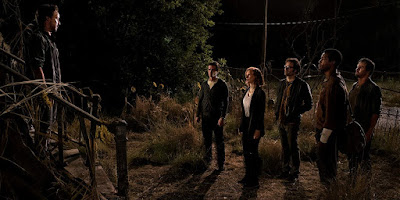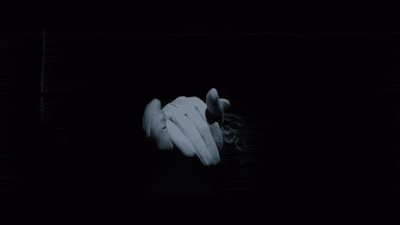or
Pennywise and Poundfoolish
Well, you can tell Halloween season is approaching because the movie-theaters are starting to get an infusion of horror movies in anticipation. I'm not a fan of the genre (although I do my time in the dungeon during the month of October), but lately, things have been mighty thin in the "Coming Soon" department, so there's no way I can avoid it. It's Horror or Nothing.
It: Chapter Two would have been seen, anyway, although I hadn't seen the "First Chapter" in the theaters. Frankly, I wasn't interested. I'd been a devotee of Stephen King's writing in his first couple decades, then around about the time of "Needful Things" and "It", I stopped reading him, mostly because I would have had to do daily bicep curls in order to read them—"It" clocks in at some 1400 pages, and if I wanted to read something encyclopedic, I'd've read the encyclopedia.*
There'd been a TV mini-series here in the States, and I turned it off after 30 minutes. Because..."clowns." My favorite books of his are still "The Dead Zone" and his novella collection "Different Seasons."
But, I did catch Andy Muschietti's Chapter One the other night on cable, and was pleasantly surprised by what I saw. Screenwriters Chase Palmer, Cary Fukunaga (he's directing the new Bond film even as we write this) and Gary Dauberman scraped away some of the fat and sillier gristle from the book and hacked away at King's flashback structure to present the "kid version" of the "Derry Disappearances" story and made it a tough little diamond. Then Muschetti, who's Argentinian, did some remarkable casting for the kids (with an eye to who would play them as adults) and had the truly inspirational idea of putting Bill Skarsgård in the make-up as "Pennywise" the clown, in a performance that isn't camp but devious and manic and truly creepy.
Chapter One is a good, scary movie because it concentrates on the worrisome fears that takes the innocence out of childhood and starts us on the straight path to neurosis rather than adulthood. The best part of the movie isn't the horror bits, it's the kid-bits, and the way that like-minded "Losers" can bond over the little tragedies that may mean nothing to adults (and more often than not be caused by them), but can make a kid question whether the sun should come up in the morning. Skarsgård is great and all, but one wanted to spend more time with the "Losers" because they were funny, squabbley, human...and loyal. Led by Jaeden Martell of Midnight Special and The Book of Henry, Jack Dylan Grazer from Shazam!, Finn Wolfhard, Jeremy Ray Taylor, Chosen Jacobs, Wyatt Oleff, and the remarkable Sophia Lillis.
 |
| "Here we are again in our old familiar places..." |
Now, in Chapter Two, it is 27 years later and the only one left in town is the one kid who couldn't fit in anywhere except for the Losers, Mike Hanlon (now played by Isaiah Mustafa, the guy who's hilarious in those "Old Spice" commercials). He lives in the library loft, working with dusty books in a town with internet, cell-phones, kindles and no library patronage. But, when he hears over the police scanner that another kid has gone missing after an already mysterious disappearance following a vicious homophobic attack at the town carnival, Mike puts out an APB for the Losers to "Come Home."
This is met with a universal reluctance by all the grown-up Losers: "Stuttering Bill" Denbrough (James McAvoy) is a horror writer (meta alert) who has a problem writing endings (real-life irony alert)—and he is told this by just about everybody including the cameoing Stephen King (HUGE real-life irony alert) and the director of his latest movie project, Peter Bogdanovich ("You said you loved the ending" "I lied."); Eddie Kaspbrack (James Ransome) has turned his hypochondriacal tendencies into a career in risk-management; irritatingly vocal Richie Tozier (Bill Hader, bless him) has become a stand-up comic; Beverly Marsh (Jessica Chastain) is a fashion designer who escaped her abusive father to marry an abusive husband—you can grow up but not grow out; and Ben Hascomb (Jay Ryan), the chubby "New Kid" with a crush on Bev has become a hunky architect ("shipper" alert).
The one member of "The Losers" who opts out is Stanley Uris (Andy Bean) , who chooses suicide rather than confront the potentially deadly threat. Everybody else goes back to Derry at Mike's call and meet at a Chinese restaurant. Most of them have put those days out of their minds, but the memories—good and bad—come flooding back, challenging their wills to turn back and run away.
But, Pennywise starts to clown around and go on a psychological attacks against the Losers, they start to harden their resolve and decide to follow Mike's plan to employ a Native American ceremony to weaken and take out Pennywise, whose origins (in King's tortured explanation—I won't bother to relate it, as it's tough to type when you're rolling your eyes) have more to do with the stars than with themselves.
So, the movie follows each Loser as they track down the talismans from the days of the Derry disappearances 27 years ago: the paper boat from Billy's little brother Georgie, the postcard given to Bev by Ben (although she thinks it's from Bill), Ben's yearbook page that Bev signed when he was still "the New Kid" in Derry, the asthma inhaler from Eddie, a video game token from Richie—why these things are important to Pennywise's demise is a mystery, although, dramatically, they represent a Bonfire of Childhood Vanities. Certainly it's better than the rite of passage that King wrote of, first, in his book (and the filmmakers—wisely—left out, maybe because it's just too creepy and also potentially gut-busting). They may be important to the development of the kids turned adults, but what has that to do with Pennywise?
Was it really necessary to draw it out like this? The movie clocks in at 2 hours 45 minutes and feels bloated because of it. There are lots and lots of good "bits" scattered throughout it (or It: Chapter Two) and the performances by the cast—young and old—keep the movie interesting (Bill Hader is particularly effective both comedically and dramatically). But once the battle is taken underground to Pennywise, the movie starts to get frustratingly fussy and pretentiously woo-woo. It's not even very good action—I refrained from effecting a Monty Python accent and yelling at the screen: "Run away! Run away!" as I have less of a fear of clowns and red balloons than I do of flying buttered popcorn.
Muschietti, is less at fault if his Chapter Two doesn't live up to his Chapter One—he does a good job of creeping you out and clowning around, and one looks forward to what he does in the future in whatever genre he decides to pursue next.
* I haven't completely sworn him off, though: I did read his time travel novel "11/22/63," which, although a slog, was a worthwhile slog. But, I just returned his sequel to "The Shining," "Dr. Sleep," to the library (there's a movie coming out) after trying several time to "crack" it, (and developing some bursitis in my elbow) but finally giving up on it.
















No comments:
Post a Comment